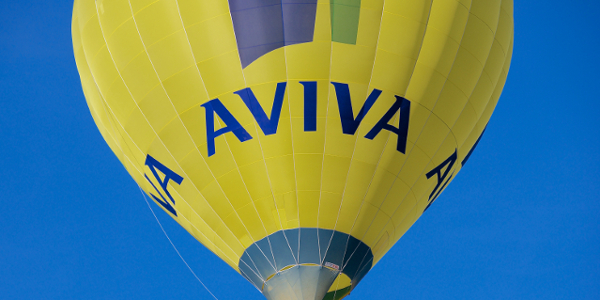ii view: Aviva dividend blow
As Covid-19 removes the dividend attraction, Aviva must work even harder to appeal to investors.
9th April 2020 10:35
by Keith Bowman from interactive investor
As Covid-19 removes the dividend attraction, Aviva must work even harder to appeal to investors.

Covid-19 update
- Cancelled 2019 final dividend
- Reviewing all discretionary and project expenditure
ii round-up:
Following recent comments from financial industry regulators, insurer Aviva (LSE:AV.) took the tough decision to cancel its pending final 2019 dividend payment.
Aviva shares fell by more than 6% in afternoon UK trading. Shares in rival insurers RSA Insurance (LSE:RSA) and Direct Line (LSE:DLG), who on the same day also pulled their dividends, fell by 6% and 11% respectively.
Aviva ordinary shares had been sat on a dividend yield of over 11%. RSA were similarly sat on a yield of over 5% and Direct Line at over 7%.
Given significant uncertainties presented by Covid-19, both the UK’s Prudential Regulation Authority (PRA) and EIOPA (European Insurance and Occupational Pensions Authority) had called for restraint regarding shareholder pay-outs.
Rival Legal & General (LSE:LGEN) recently confirmed that it intends to pay its final dividend. Its shares currently sit on dividend yield of nearly 9%.
Aviva pointed to the payment suspension being taken despite remaining well capitalised and with strong liquidity. However, given the degree of economic uncertain, it is now reviewing all discretionary and project expenditure.
An operational update is now scheduled for the second-half of May, with a review of the dividend coming in the fourth quarter.
ii view:
The future vision for the company involves making it simpler, more competitive and more commercial. Under relatively new leader Maurice Tulloch, Aviva has now been simplified into the five core divisions of Investments, Savings and Retirement, UK Life, General Insurance, Europe Life and Asia Life.
In 2019, customer numbers rose by 2% to 33.4 million. A focus on cost reduction now sees it targeting a reduction of around 6% of its 30,000 staff over the next few years. The group’s financial strength remains strong.
However, there is still much to do. The value of new business and net written general insurance premiums each only increased by 2% over 2019. In the last 10 years, and with investors turning to stock market investments as bank deposit rates stayed ultra-low, Prudential (LSE:PRU) and Legal & General shares have risen by 79% and 123% respectively - Aviva shares have fallen by 33%. The loss of the dividend payment under Covid-19 is another blow.
Aviva’s brand name is strong, but it needs to work hard to find the growth initiatives which its major rivals have managed.
Positives:
- Relatively new CEO looking to provide renewed clarity of purpose
- Cost cutting programme
Negatives:
- Dividend attraction now removed
- Underperforming Asian business
The average rating of stock market analysts:
Buy
These articles are provided for information purposes only. Occasionally, an opinion about whether to buy or sell a specific investment may be provided by third parties. The content is not intended to be a personal recommendation to buy or sell any financial instrument or product, or to adopt any investment strategy as it is not provided based on an assessment of your investing knowledge and experience, your financial situation or your investment objectives. The value of your investments, and the income derived from them, may go down as well as up. You may not get back all the money that you invest. The investments referred to in this article may not be suitable for all investors, and if in doubt, an investor should seek advice from a qualified investment adviser.
Full performance can be found on the company or index summary page on the interactive investor website. Simply click on the company's or index name highlighted in the article.